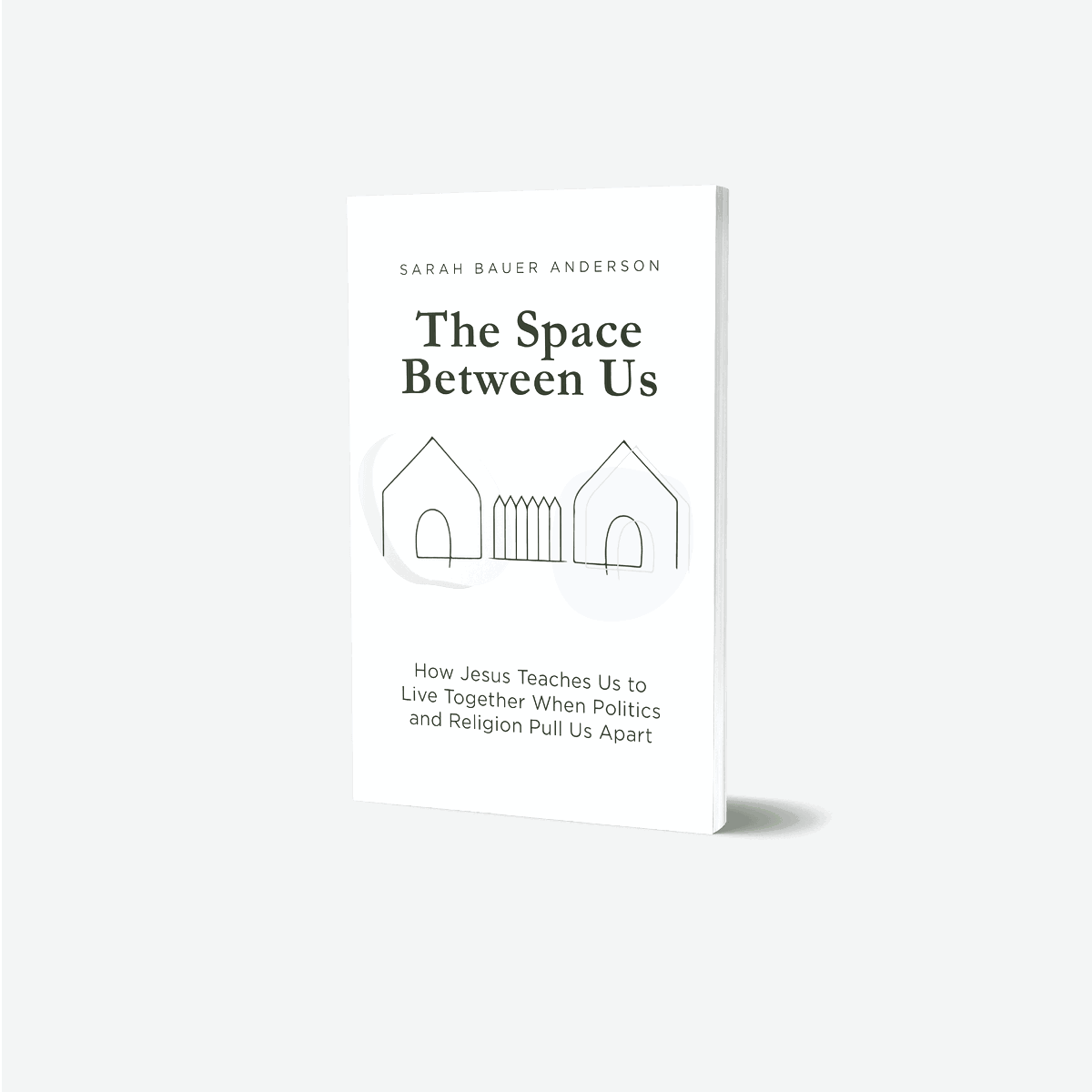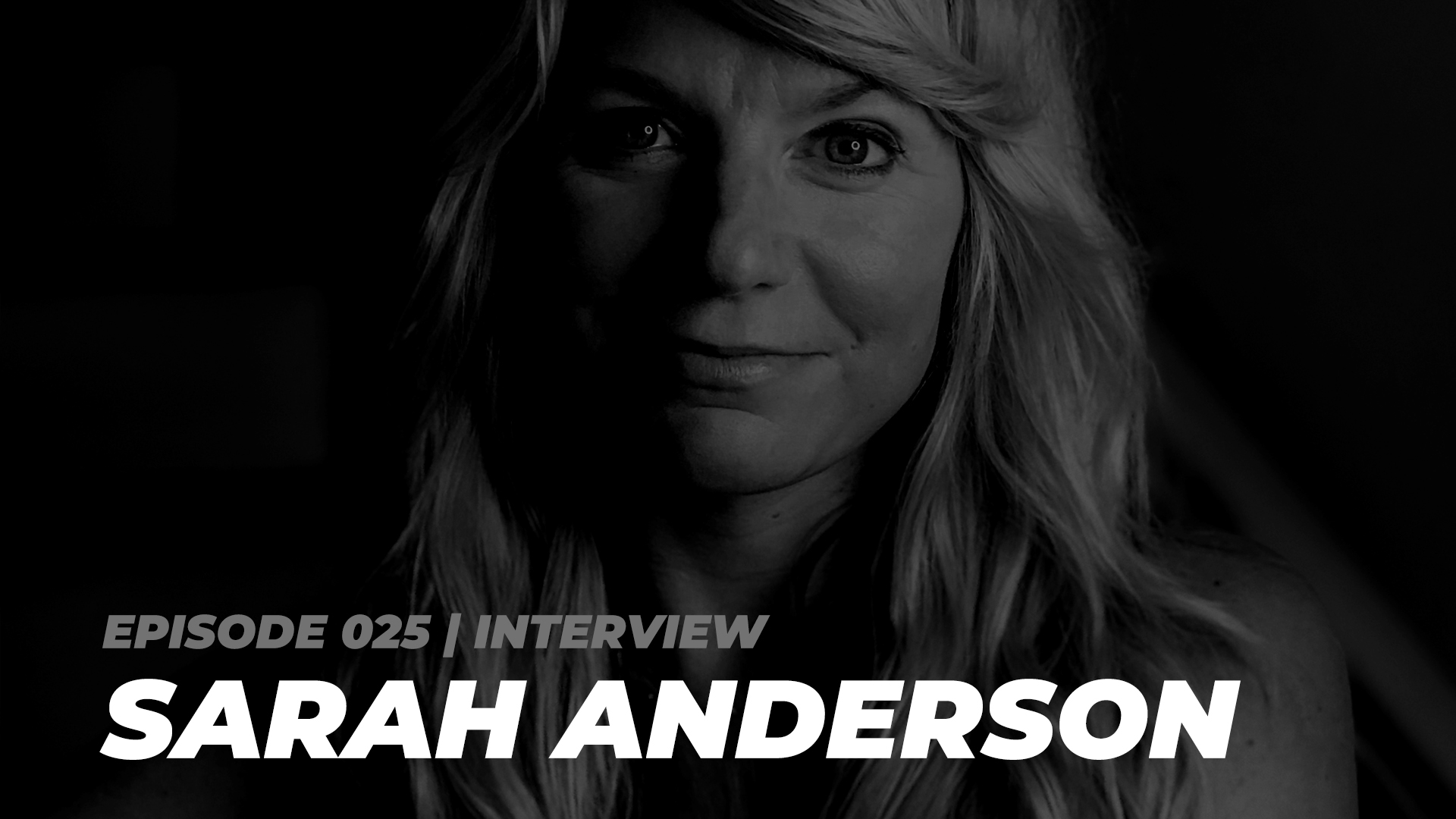A native of the greater Washington, D.C. area and a current resident of the Bible Belt, Sarah B. Anderson has spent her entire life learning to live in the tension both politics and religion create, and striving to learn how to best navigate the complicated issues and emotional conversations around these weightier topics. Sarah’s recently released book titled The Space Between Us: How Jesus Teaches Us to Live Together When Politics and Religion Pull Us Apart is a challenging yet practical guide to navigating the tension.
Sarah’s father Gary Bauer served as the president of the Family Research Council from 1988 to 1999. He resigned from this position to run for the Republican Party nomination for President of the United States. He left the race after the primaries in February 2000.
Sarah both writes and speaks on culture and faith and has worked for Orange, a non-profit that partners families and churches together for the spiritual development of the next generation, since 2008. Sarah currently lives in Roswell, Georgia with her husband and two boys.
Sarah and Stuart have a candid, fun and interesting discussion about courage and what you as a next generation leader should consider when choosing love over fear.

( The Introduction of Sarah B. Anderson’s new book The Space Between Us )
There’s a line from the Jewish Talmud that says, “If the house has fallen, woe to the windows.” It’s the idea that we are part of a connected collective. That we do not operate independently from one another. That “the fate of each is bound up in the whole.”
It’s a simple enough idea, but I suspect you and I might agree we aren’t doing a very good job living as if this is true. We live deeply fragmented and divided lives in times where our politics, party, religion, denomination, and theology are revered and almost idolized above everything else. We hold to them so tightly that we are willing to justify all kinds of bad behavior to elevate our way of thinking, believing, and voting for the sake of self-preservation and self-elevation.
And in the meantime, this collective “house” we live in—our shared experience, shared space, shared culture—is growing weaker. Its foundation is deteriorating, and its roof is caving. We have become so single minded in promoting our own that we’ve compromised the integrity, goodness, and strength of the whole: the whole of our country, the whole of our faith, and the whole of the humanity we live alongside.
It’s become difficult to watch the news.
Social media is often a dumpster fire.
Conversations, debates, and free exchanges of ideas have become tense, if they happen at all.
On a lot of days, it doesn’t look good.
But I haven’t given up hope.
Don’t get me wrong. There are days where, for me, the news channels stay off and social media stays closed. But it’s not every day. And in fact, I refuse to believe we have gotten to the point of no return. Since you’re reading this book, I suspect you might feel the same way.
And that’s why what follows is for us. All of us who aren’t quite ready to throw in the towel.
It’s for the people who haven’t lost faith in the house. Who have their feelings, and opinions, and ideas about the windows, but are trying not to lose sight of the bigger picture. It’s for people who believe there is a better way. It’s for the people who know the windows matter, but so does the house. And because the house is in poor shape, it’s for the people who are asking the question, “How are we going to make it right? To fix what feels like a rapidly worsening situation? As followers of Jesus, what is our responsibility?”
I can’t promise to have all of the answers in the pages that follow. I can’t really promise to have most of the answers. But I can promise to share what I learned growing up outside the Nation’s Capital as the daughter of a former Republican Presidential candidate and what I’ve experienced as an adult living inside the Bible Belt working in the church world. What you’ll find is what I’ve come to believe is the best way forward—an alternative to the visceral times we live in.
Saving the house starts, I believe, with asking a different question.
We’ve been asking, “How do I get others to change their minds, see as I do, come to my side and be like me?” But what if instead, we started asking, “How can we begin to close the space between us?”
What if instead of trying to make us the same, we got better at understanding and appreciating where we are different? What if we learned to practice compassion in our differences instead of judgment? I know, it seems simplistic. And I know it’s certainly more complicated than that. But I’m not convinced it doesn’t start there. So, why not start there?
I’ve never been mistaken for an optimist. (I don’t know many natives of Washington DC who are.) But these days, I’m as close as I’ve ever been. Because we’ve never been more poised for great change than right now. Because we’ve never felt the need for a different way more than we have right now. Because the time is ripe for something new. For a way to cross the widening space between us. And I think one of the most divisive people in all of history—Jesus—may offer us the best insight into how we go about doing just this.


In an interview with Krista Tippet and her podcast On Being, Vatican astronomers Guy Consolmagno and George Coyne talk about this idea of “educated ignorance”. It’s the notion of knowing we don’t know but continuing to educate ourselves. They were speaking in light of their role as scientists and their position and place in the Catholic Church, discussing how their roles in both science and religion are not at odds, though they might appear to be. That in fact, educated ignorance is a posture both science and faith could benefit from holding more often. In the same way, our politics could stand to reflect the same stance.
To live self-aware of our finitude and limited understanding, we not only need to become healthier versions of ourselves by going after this idea of educated ignorance, we need to become safe people for others to unload their own questionings in their own pursuit of educated ignorance. So, how do we become these kinds of people? People who, no matter what their religious or political persuasion, are safe, compassionate, and maybe most of all, generous listeners? Well, I think we can start by changing the way we talk ourselves.
You can start by saying “I believe” more often than “I know.”
You can regularly qualify what you say by acknowledging your limited experience and your particular circumstances that may have allowed you to reach the conclusions you have.
You start valuing people and influence in your relationships with people by listening far more than you talk.
INFLUNSR. defines courage as choosing love over fear.
In what areas has certainty edged out mystery? How has that impacted relationships with people who think differently than you? How has that impacted the way you view people who think differently than you? How is it possible to maintain your personal convictions while leaving room for mystery with those you don’t see eye to eye with? Journal your thoughts.


